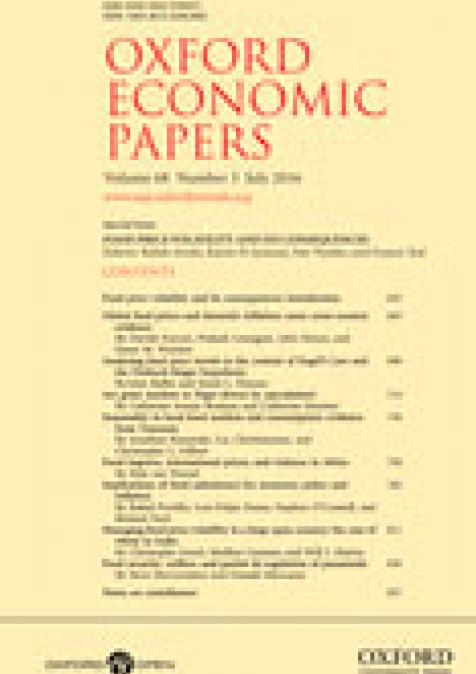Publications /
Opinion
They hesitated for decades before returning to the battle field, observed closely by its citizens and neighbors, the enemies of yesterday. For years Germany has been reluctant to engage in military actions outside its borders because of the shame of war, the fear of being misunderstood or again being accused of military adventures. Yet, history was advancing, relentlessly, and Realpolitik, the recognition of reality, caught up with Berlin. Today German troops are engaged in Afghanistan, German pilots are stationed in Jordan, helping in the struggle against the so-called Islamic state, and yes, for four years now the German “Bundeswehr” is active in the Sahel region. In November of last year, the Parliament extended the authorizations for 1300 soldiers to be stationed in Mali for three additional months, and 1000 of those troops remain as part of the UN sponsored stabilization attempt, the Minusma mission.
If Mrs Angela Merkel will remain in power (which is questionable if the Social democrats leaders are not authorized by their party members to enter into the so called “Grosse Koalition”, or the big coalition), the German chancellor, new or old, will have to ask the parliament for another extension. The Germans are aware and concerned about the instability of the region.
Terrorists, some radical islamists, rebellious tuaregs, are hindering the timid attempts of governments, the creation of reliable infrastructures, the protection of the borders which consist in endless miles, 10 000 or more, who knows for certain. How many enemies of these five G5 Sahel nations (Mauritania, Mali, Niger, Burkina Faso, Tchad) do threaten peace, again, a figure unknown? They are a menace, as proven in the second week of January. French troops were embushed and three soldiers wounded. 13 000 UN peacekeepers have been deployed, 300 German troops are active as advisors to the Mali Armed Forces. Is progress possible, the containment of the unrest visible? No, it is almost impossible to pacify all 5.090 725 square kilometers, harsh land, much of it desert, and on endless stretches no population. In his well-written and thoughtful article published in October 2017 by the OCP Policy Center in Rabat (Morocco) on “State, Borders and Territory in the Sahel: the Case of the G5 Sahel”, author Abdelhak Bassou argues that extremist violence, migration, transnational crimes and precariousness are “symptoms of a disease that will only get worse if the real and deep causes are not addressed”.
In other words: nation building, structure of government, health care, border security problems that many African nations face, need to be addressed, despite urgent attempts for change are already implemented by some. The military intervention by the UN sponsored troops may contain, for a time, restless and violent elements, but the reduction of often miserable living conditions in the Sahel nations is not part of the military mission, as Abdelhak Bassou rightly argues: ”the livelihood is under higher threat than their physical security”. In July of last year, the German military suffered its first lost in the Sahel -two pilots crashed with their helicopter during a surveillance flight. As soon lives were lost, public opinion questioned deployment of German troops in the remote desert areas of Africa. The German government argued that stability is needed in the Sahel/Sahara regions, not only to secure the African nations and their democracies, but also to avoid a mass exodus of starving and suffering citizens towards the shores of the Mediterranean Sea, hoping to escape poverty and joining other refugees in their often deadly attempt to reach Europe. The German navy is part of the operation “Guardian” in the Mediterranean sea, attempting to intercept smugglers transporting illegal migrants. Many of them try to escape through neighboring Niger, which received last year 100 flatbed trucks, satellite telephones and motorcycles from Berlin to equip their police and military.
The deployment of its troops did cost Germany last year (until January 30 of 2018) 163 million Euros, a rather modest sum. But a new government in Berlin, possibly formed by February or March, may, after a reasonable period of time, argue that the Sahel/Sahara nations should rely on their now envisaged, united, rapid intervention forces and emphasize regional solutions. Such a decision though seems unlikely, and will certainly not be suggested by Mrs Merkel, who would not like to disappoint her closest Foreign ally Emmanuel Macron, whose troops are actively engaged in the Sahel region. Future further losses of German troops could initiate a debate of whether or not German soldiers should continue to be engaged in Africa. The continued flow of immigrants through the Sahel region though, would be used to argue for maintaining a military presence, which was bolstered in mid-January by the decision of the British government to deploy some troops and few helicopters, in the Sahel region as well. A symbolic gesture, not more, but encouraging the French and the Germans in their deployment of troops. Unlike the United Kingdom and France, Germany has not been a colonial power in Africa since it lost control of its colonies (Togo, Burundi, Cameroon, South West Africa and German East Africa) after the loss of the First World War. The flow of refugees, particularly from the Middle East war zones, forced Germany to rethink its position of no interference in military conflicts in Africa. There is still no enthusiasm about the Sahel in Germany, but its military will, no question, continue its mission with professionalism and caution, convinced that stability in Africa also means stability in Europe.






